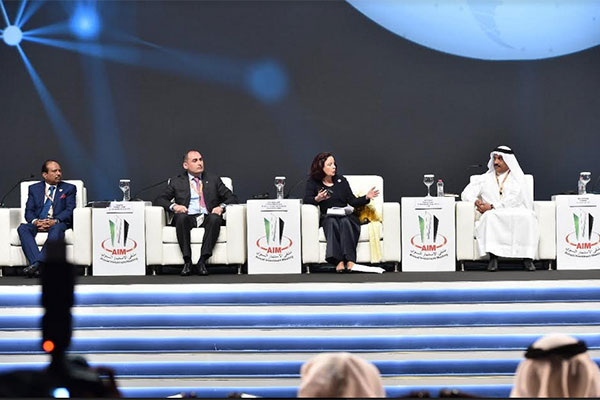
UAE’s FDI outflow hits $16bn in 2016
DUBAI, April 30, 2018
The total FDI outflow from the UAE reached $16 billion in 2016, ranking it 23 in the world in terms of FDI outflow and the first in the Middle East, making it a net capital exporting country in the world, said a top official.
The total foreign direct investment (FDI) outflow from the UAE reached $16 billion in 2016, ranking it 23 in the world in terms of FDI outflow and the first in the Middle East, making it a net capital exporting country in the world, said a top official.
Jamal Al-Jarwan, secretary-general of the UAE International Investors Council (UAEIIC), a semi-government institution under the chairmanship of the UAE Minister of Economy, added that the UAEIIC is playing an instrumental role in bridging the gap between public and private sector as well as spearheading UAE’s investment in other countries.
FDI flow in to the UAE reaches $10.3 billion in 2017, up from $9.6 billion in 2016, according to the UAE Competitiveness and Statistics Authority.
This is at the backdrop of a global decline in FDI flows. Global investment is seeing a bumpy recovery as worldwide FDI flows reached $1.52 trillion in 2017, according to the World Investment Report published by the United Nations Council on Trade and Development (UNCTAD). FDI to developing economies remained stable, at an estimated $653 billion, 2 per cent more than the previous year.
Al-Jarwan was speaking the recently concluded Annual Investment Meeting (AIM), organised by the Ministry of Economy. The conference was attended by 143 countries, some 20,000 VIPs and government delegations, investors and business visitors.
He called on the public and private sectors to take advantage of the status of the UAE as the largest and most attractive source of foreign direct investment among the Arab countries, pointing out the importance of synergies to reap the benefits of growing investment opportunities at home and abroad.
Al Jarwan said the UAE has become the centre of the world's focus as its investors – individual, corporate, institutional and Sovereign Wealth Funds (SWFs) – have made great contribution to the economies.
He pointed out that UAEIIC is aware of the growing competition among countries to attract FDI. The UAEIIC is increasing its role in support of national development, and make significant contribution through investment in projects.
“All of us, the private sector and the public sector, must maintain our achievements and not lose the leading position in investment in the Arab world in bringing and exporting investments. We have a lot to do in the next stage to strengthen our country's position in the face of a global competition,” he said.
“Most countries are now liberalising their laws to create a better investment environment for attracting FDI. The AIM took reflected the UAE's successful approach to promoting investment inflow and outflow, despite a slowdown in the global FDI flow.
“However, although there is no shortage of capital, but I urge investors to exercise caution and wait until they find the most attractive environment for investment. Experience has shown that the UAE investors have a long history of foreign investment and has gained considerable experience in managing the investment.
“UAE investors are ready to help rebuild the economies of the Arab countries affected by conflicts and we will do what it takes to help these economies, and I am sure that the UAE government is proactive in providing support in this regard,” he said.
“Since its establishment, the UAEIIC has succeeded in taking many important steps to become the voice of UAE investors at home and abroad and has become the national institution for the development and promotion of national investments through enhanced communication and effective coordination between foreign investors and the public sector and foreign entities to support and protect the rights of UAE investors abroad as well as to encourage investment in vital areas that serve the economic diversification pursued by the UAE,” he said.
Al-Jarwan identified a number of recommendations that UAE investors must adhere to when planning to invest abroad. These recommendations include studying the target country’s investment laws, conducting a thorough market research, evaluating the assets through reputed financial institutions, consultation with government agencies, evaluating potential partners, seeking advice from the target country's government officials, the existence of investment protection agreements between the UAE and the target countries, potential economic growth and the ranking in ease in doing business.
“Investors should analyse the geopolitical climate correctly, choose the right management, not to neglect sensitive management positions, follow up and update the business plan every year, form a supervisory unit for foreign investment, and ensure having solid legal agreements that protects the investment and shareholders and choose the appropriate laws that provide full protection for investment, and focus on the formation of the teams and not neglect the structure of capital between debt and equity in an optimal manner, and be careful against fluctuations in the local currency,” Al Jarwan said.
“There should be a clear understanding among the shareholders on the risks in foreign investment and the private investment climate in the country. Investment decision should always be based on financial and strategic return to the investors,” he added. – TradeArabia News Service







